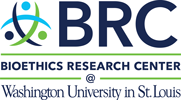Title: Property, Contract, Privacy Rights in the Human Body
Author: Adrienne Carpenter
Description: Patients wish to remove donated samples after their doctor transfers from a university to another institution. Patients claim they have the right to withdraw participation at any time; the university counter-argues that the samples were a gift and thus university property.
Keyword(s): Future Research on Stored Samples, Informed Consent, Privacy/Confidentiality, Future Research on Stored Samples, Withdrawal from Study
Case: The City University owns a Genito-Urinary (GU) Repository used to conduct research on various prostate related conditions. A physician who enrolled many of his patients in the repository is leaving his research post at the City University to take a position at another institution. His patients who donated their genetic material to the repository wish to remove their samples for relocation at the physician’s new institution. They claim the right to remove their samples based upon a clause in the informed consent form, which stated that consent could be withdrawn at any time. The City University, however, files for a declaratory judgement action to establish ownership of the donated material (including DNA, blood, and tissues). The University argues that the clause in the consent form meant that patients could decide not to donate tissue in the future, and did not mean that patients retained ownership of the sample or control over disposition of the samples. Ownership belongs to the University, because the material was donated as a “gift.”
- Should the patients be allowed to withdraw their donations from the repository? Does the University correctly assume ownership of the material? If patients can withdraw samples from a study, should they be able to redirect their samples or should they only be allowed to require that the samples no longer be used for research?
- How might the University clarify their ownership position for future participants?
- What are the ethical issues associated with property rights or ownership of bodily materials?
- What concerns might arise if people who contribute tissue samples are not allowed to withdraw or redirect samples?
Source: Radhika, R. (2007). Genes and spleens: property, contract, privacy rights in the human body. Journal of Law, Medicine, and Ethics, 35(3), 371-380

